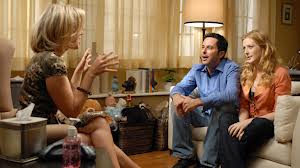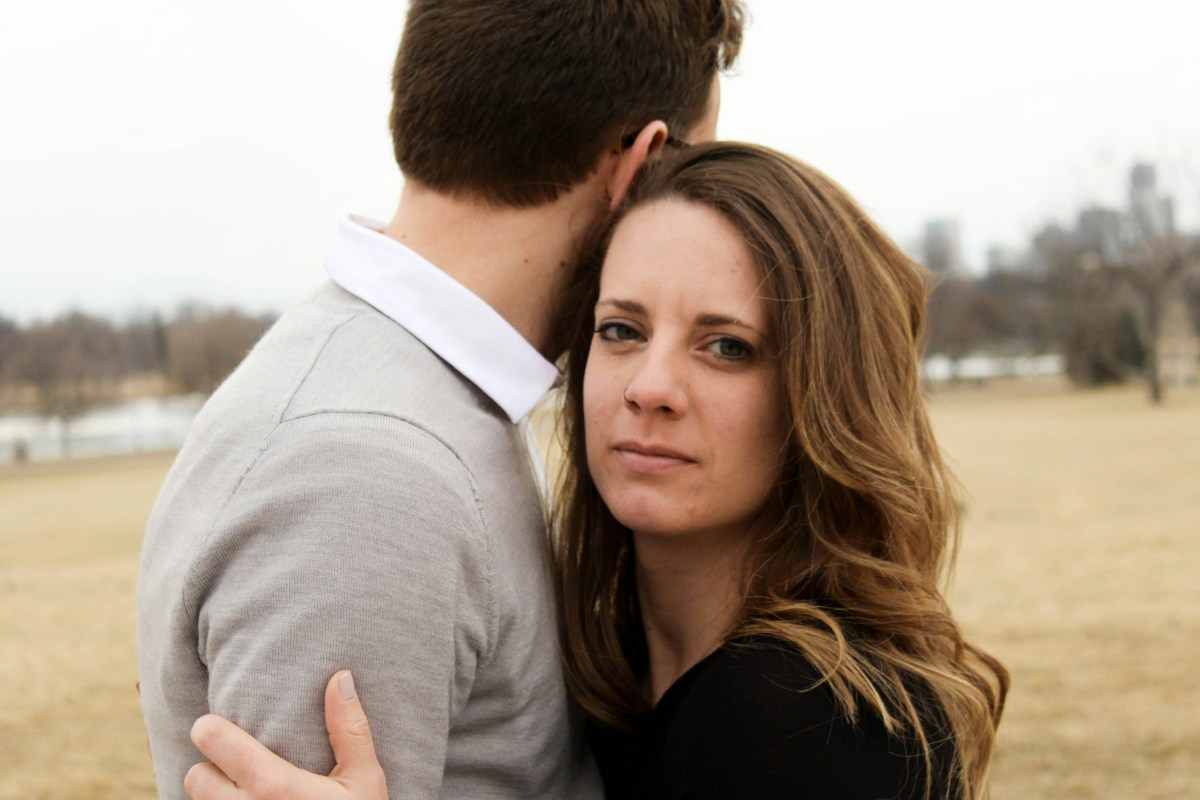Does Your Relationship Need Love Therapy? -Stephanie Bailey

There seems to be a preconceived notion that a successful, perfect relationship is the result of no verbal fights, emotional arguments, differences of opinion, challenges, etc. However, genuine, functional relationships are not perfect and lasting partnerships take work. Some couples can maintain the “honeymoon” stage for months—sometimes years, but there usually comes a point where the honeymoon stage fades and the disagreements begin. That’s when the real work starts.
All of a sudden (or so it seems), you realize that the person you are dating isn’t as ideal as you imagined. Conversations that were once comforting and easy are now filled with frustration and anger. You start to ask yourself, “Why doesn’t my significant other act the same way as when we first dated?” Or, “what am I doing wrong to feel less desirable to him (or her)?” Or, "why does it seem as if we’re fighting more often than making love?”
To think that you will always get along with your significant other and never argue is unrealistic. Of course, consistent arguing is also not healthy—there needs to be a balance. A strong relationship should consist of fewer arguments and more happy moments—more often than not.
Can two people who love each other argue in a healthy way? Yes, as long as they can listen with compassion—recognizing where their partner’s feelings are coming from. You may not always agree or completely comprehend their perspective, however, validating each other’s feelings is a significant step towards becoming closer and fighting less.
Recognition of emotions can be hard when the wall of communication separates you and your partner. Trying to clarify and figure out someone’s mind set and actions can be exasperating, especially if there is lack of communication and understanding. Is love enough to knock this wall down? That depends on what you are willing to do to keep the relationship—for me, it required a therapist.
The older I got, I started to notice that my vault of unsuccessful relationships seems to be overflowing. I was forced to have a serious talk with myself….and find a great therapist, ASAP.
With the help of my therapist, I figured out the deeper root to why my relationships where unsuccessful—I was drawn to men who were emotionally unavailable and I also have abandonment issues.
As a child, I was very close to my father. However, he was emotionally unavailable to my mother (this I found out this 20 years after his passing). I never knew his lack of emotional availability on a conscious level—since my connection with him revolved around a father/daughter relationship. Later, as I begin to date, I sought out men who were similar to my father—emotionally unavailable. By doing this it gave me an excuse to put walls up around my heart.
Don’t get me wrong, my father was an exceptional person in my life. He believed that I could accomplish anything that I wanted to. He taught me to be open to love, and to live my life in a compassionate, positive way. He often told me, “Don’t be sorry, just don’t do it.” He also emphasized forgiveness because people make mistakes: “Three major strikes before giving up”—which meant that I should always give people another chance (or possibly two). This lesson of forgiveness hasn’t been utilized as deeply in my intimate relationships as my friendship. With men, if my emotional boat is slightly rocked, it is time for me to swim to shore…quickly!
With my therapist’s guidance, support, and thought-provoking questions, I realized just how eye-opening and important therapy is for me. I became more aware of the obvious “red flags” that each of my past relationships were waving BOLDLY in front of me—that I blatantly chose to ignore. I quickly realized that my “type” of guy was someone that was emotionally unavailable. Great.
I also realized the specific role I played in these relationships—in other words, the things I would do and say to subconsciously sabotage the relationship’s success. I was constantly searching for faults, which in turn kept my heart at a distance. When I stacked up just enough character flaws against my significant other, I would have an adequate and justifiable reason (or so I convinced myself) to finish the relationship—or at least emotionally pull away, causing it to end.
In most of my romantic relationships, I let three strikes control the fate of our partnership. Digging even deeper, I recognized my desire for independence—I found that I could not solely depend on a man—out of fear of him leaving. I wanted to avoid depending on someone 100%, who could potentially leave me. This mind frame stemmed partially from the loss of my father when I was 20 years old…and even earlier when my biological parents “gave me up” for adoption. These abandonment issues negatively influenced the decisions I was making, and they had the power to alter my perception of the men I was dating.
Through my therapy sessions, I was enlightened: I received the much-needed wakeup call about my emotional constraints and subconscious issues. In turn, I was better prepared—emotionally—to handle my next relationship. And since I was unaware of the kind of emotional issues he would be carrying, I made the decision that my next meaningful relationship would benefit from the guidance of a therapist. Someone we both didn’t know, but also liked equally.
After sharing concerns regarding my previous relationships, my last boyfriend and I found a couples’ therapist to keep our relationship healthy, strong, and progressing in the right direction. He had past issues (as everyone does!) that we knew would ultimately affect our partnership. Through our therapy sessions, he not only had a better understanding of how to deal with his internal conflicts, but also mine—why I shut down and pulled away and where my abandonment issues stemmed from. Through his clearer understanding, I pulled away less in comparison to my past relationships. I also had a better understanding of why he reacted the way he did, what his fears and abandonment issues were, and the communication style he responded and connected best with.
Through therapy, we learned to communicate with each other more constructively: with loving words, compassion, and understanding. Our conversations were effective. We worked on speaking from our hearts—transferring our emotions into thought-out words to explain how we were feeling. We try to implement “The 5 Love Languages” by Gary Chapman and “The Seven Principles For Making Marriage Work” by John M. Gottman, Ph.D—per our therapist’s recommendation to put us on the same “life” path.
Although therapy didn’t entirely stop us from fighting (don’t expect miracles!) it did lower how often we argued. The fuse that started the fights defused so much earlier. Through our sessions, we became stronger and more connected as a couple. I can honestly say that without therapy, we would not have lasted as long as we did. We would have missed out on a love journey due to our overshadowing egos, fear, and emotional crap.
Today, I feel blessed to have had a boyfriend who was open and honest about his past problems from the beginning. So, when things were “perfect,” we made the decision together to seek out a therapist before our issues prevailed. This was the most brilliant plan I've had with a boyfriend, and I regret not toying with the idea of couples’ therapy in my previous relationships. I truly believe that if a therapist could intervene prior to issues developing in new marriages, there would be fewer divorces as a result of the therapist’s support. I feel that many couples fear therapy; however, it is incredibly empowering for any relationship—and it has been for mine.
My therapist helped me open my heart and mind to accepting my partner as a whole person—his opinions, differences, insecurities, and more. I no longer felt the need to distance myself when I felt the relationship was changing; rather, I used my empowerment to not give up, and I could not be more grateful for her wisdom and advice.
Unfortunately, due to extenuating circumstances and the fact that he no longer wanted to see a therapist, my relationship with my boyfriend diminished. Together, we were not strong enough to keep a sturdy foundation—one built on open, honest, and loving communication. As my ex-boyfriend pulled away from therapy, our relationship suffered. His anger issues were too overwhelming for me to handle. Coming to this realization was not easy, but this revelation has allowed me to move on. I am hopeful that my next relationship will be healthier and more successful because of what my previous relationship has taught me. I also value a therapist’s advice and opinion even more, and I will seek outside help before the going gets tough.
These days, whether you are actively looking—or are currently in a relationship—therapy is an essential tool for finding “the one” and ultimately creating lasting love. Even if your current relationship doesn't survive after therapy, the experience will prepare you for the relationship that is meant to be. It's a win, win situation. You have a better chance at walking away with a strong head on your shoulders, a brighter outlook on love, a better sense of who you are, and how you can contribute positively to your next relationship.








